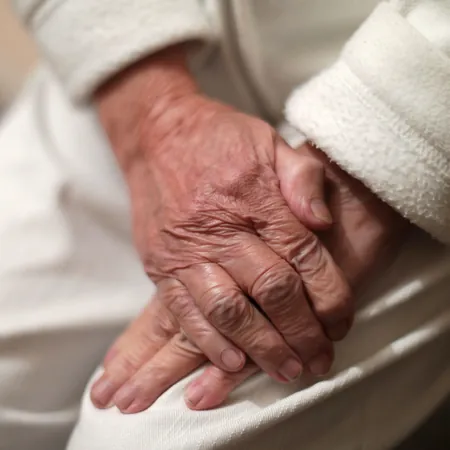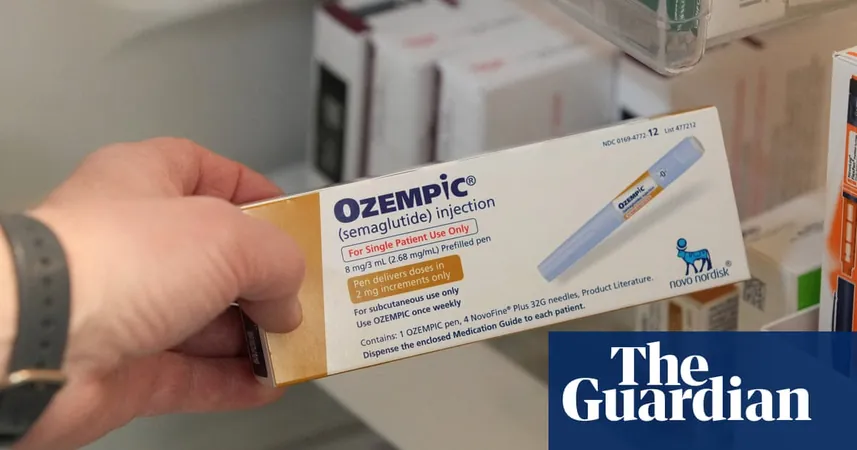
Breakthrough Study Aims to Revolutionize Non-Invasive Treatments for Dementia and Parkinson’s Disease
2024-09-22
Groundbreaking Initiative by Nottingham Trent University
In a groundbreaking initiative, researchers from Nottingham Trent University are embarking on the first-of-its-kind study that seeks to harness ultrasound technology and specialized microbubbles to develop a non-invasive treatment for Alzheimer's disease, dementia, and Parkinson’s disease. This innovative approach aims to deliver therapeutic agents directly to the brain, effectively targeting the diseases without the need for invasive procedures.
Opening the Blood-Brain Barrier
The research team believes that the key to combating these debilitating conditions lies in opening the blood-brain barrier—a protective shield that, while safeguarding the brain from harmful substances, also prevents essential treatments from reaching their intended targets. By utilizing microbubbles in conjunction with ultrasound, the researchers hope to temporarily penetrate this barrier, allowing medications, including potential stem cell therapies, to flow into the brain and initiate healing processes.
Insights from Dr. Gareth Cave
Dr. Gareth Cave, who leads the nanoscience and drug delivery group in the university's School of Science and Technology, commented on the urgency of the research: 'These illnesses do not discriminate; once they take hold, they consume valuable years and rob families of their loved ones. Our pursuit of a novel and innovative approach stands to transform the treatment landscape.'
Monitoring Progress with MRI Technology
The study will employ MRI technology alongside ultrasound to monitor real-time physiological changes in the brain as treatments are administered. The researchers also aim to employ light particles to energize cells in the brain and the blood-brain barrier, thereby promoting natural healing processes more efficiently.
Critical Timing and Funding Support
This ambitious project comes at a critical time, with statistics indicating that over 944,000 individuals in the UK currently live with dementia—a figure that is projected to surpass one million by 2030 due to increasing life expectancies. Supported by substantial funding exceeding £1 million from the Eranda Rothschild Foundation, the research promises significant advancements in understanding and treating neurodegenerative diseases.
Developing a 3D Lab Model
As the team develops a 3D laboratory model of the blood-brain barrier using human brain cell cultures, they aim to explore potential therapeutic targets swiftly and effectively, paving the way for a future where non-invasive techniques could transform how these diseases are managed and treated.
Conclusion
Stay tuned as this research unfolds, potentially leading to revolutionary treatments for millions suffering from these life-altering conditions!






 Brasil (PT)
Brasil (PT)
 Canada (EN)
Canada (EN)
 Chile (ES)
Chile (ES)
 España (ES)
España (ES)
 France (FR)
France (FR)
 Hong Kong (EN)
Hong Kong (EN)
 Italia (IT)
Italia (IT)
 日本 (JA)
日本 (JA)
 Magyarország (HU)
Magyarország (HU)
 Norge (NO)
Norge (NO)
 Polska (PL)
Polska (PL)
 Schweiz (DE)
Schweiz (DE)
 Singapore (EN)
Singapore (EN)
 Sverige (SV)
Sverige (SV)
 Suomi (FI)
Suomi (FI)
 Türkiye (TR)
Türkiye (TR)